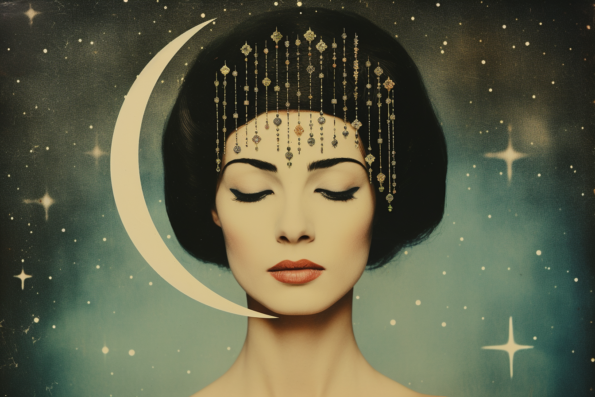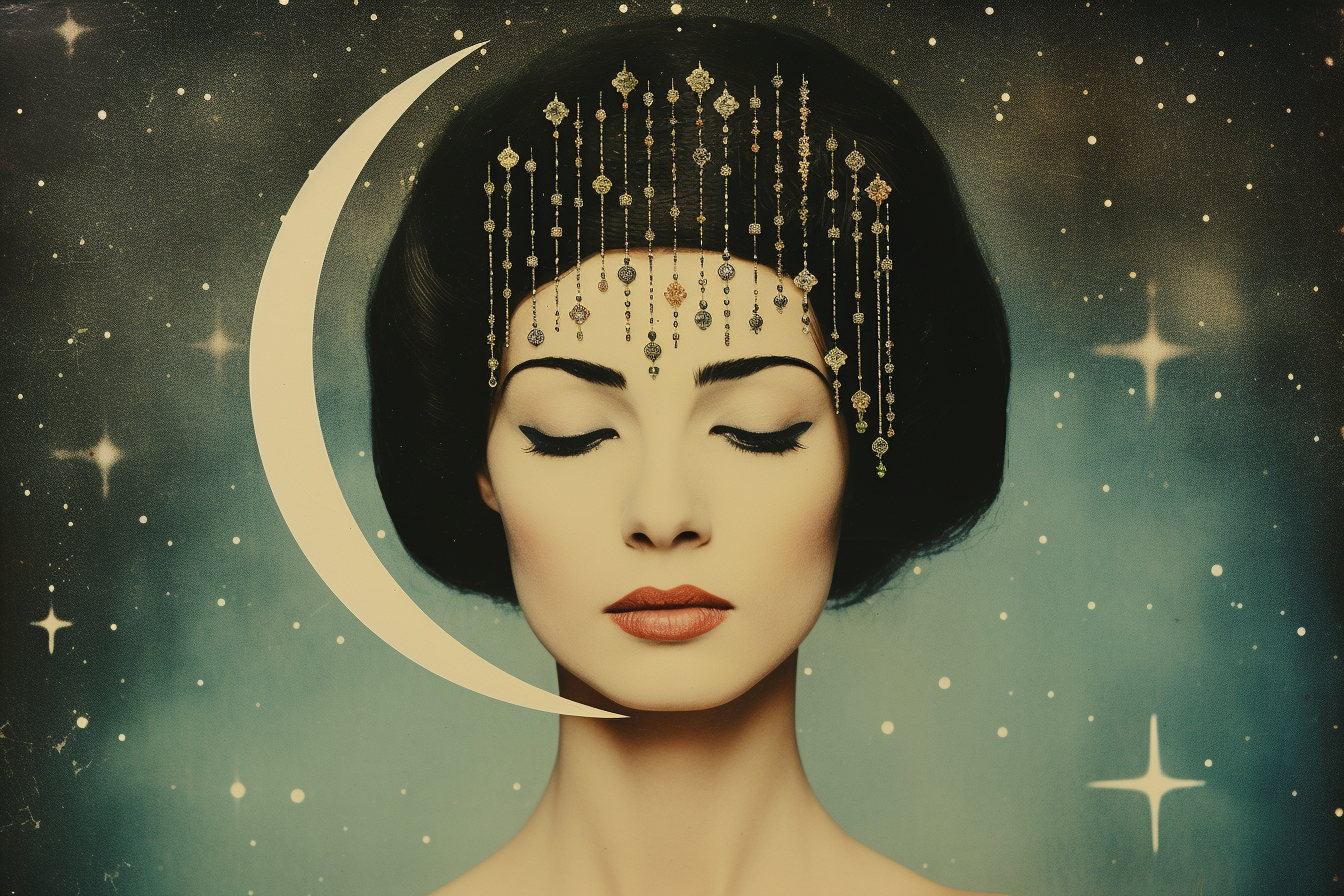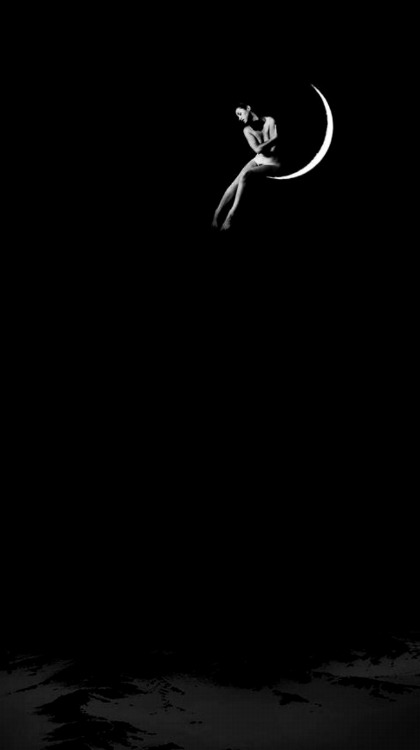 The Moon doesn’t just illuminate the night, it reveals the hidden depths of our souls. Just as the Moon sways the ocean tides, it influences our own internal tides – our feelings, instincts, and subconscious. Our emotions, like the Moon’s phases, have their highs and lows, waxing and waning, experiencing surges of joy and depths of despair. In astrology, the Moon is seen as a wellspring of memories, past experiences, and ingrained behaviors, all tucked away in the depths of our unconscious.
The Moon doesn’t just illuminate the night, it reveals the hidden depths of our souls. Just as the Moon sways the ocean tides, it influences our own internal tides – our feelings, instincts, and subconscious. Our emotions, like the Moon’s phases, have their highs and lows, waxing and waning, experiencing surges of joy and depths of despair. In astrology, the Moon is seen as a wellspring of memories, past experiences, and ingrained behaviors, all tucked away in the depths of our unconscious.
The Moon’s role becomes especially relevant when we are trying to overcome destructive emotional reactions to situations. In these moments, we confront the deep-seated patterns and automatic responses stored within our unconscious mind. However, with an understanding of the Moon’s influence, we can approach these challenges with more insight and awareness. By recognizing this lunar connection to our emotions, we gain greater self-awareness, empowering us to address these challenges.
Instead of simply reacting to external events, understanding emotions requires delving deeper into human psychology. The Moon in astrology acts as a symbolic representation of our inner world, where our emotions, reactions, and subconscious processes reside. Take emotions like anger, irritation, and sadness. While external events can spark them, the true intensity often originates from within. The Moon’s symbolism as the repository of our emotional experiences highlights that these reactions are deeply embedded into our very being. It’s like the Moon casting its own light upon the emotional landscape of our psyche.
Our reactions to situations aren’t just immediate responses; they’re filtered through the lens of past experiences, beliefs, and biases, all residing in the unconscious mind – a realm the Moon is associated with in astrology. This lunar influence reminds us that these underlying factors shape how we perceive and respond to the world. Furthermore, the Moon’s connection to our moods, feelings, behaviors, and habits underscores its role as a mirror reflecting our internal dynamics. Just as the Moon waxes and wanes, our emotional states fluctuate.
Unchecked Emotions
When left unchecked, emotions have the potential to manifest in ways that may not align with our intentions or values. This is where the importance of emotional regulation comes into play. Unchecked emotions can emerge in inappropriate or harmful ways. Imagine a tidal wave suddenly crashing onto the shore, causing chaos and disruption. Similarly, unbridled emotions can surge forth, impacting our communication, decision-making, and relationships.
Unmanaged anger may lead to hurtful outbursts, unchecked sadness might result in withdrawal or indifference, and uncontrolled fear may lead to avoidance or overreacting. The Moon’s symbolism reminds us that just as its gravitational force affects the tides, our emotional currents can impact the landscape of our interactions. Acknowledging and validating our natural emotions is essential, but it’s equally important to develop the ability to respond to them consciously and skillfully. Emotional intelligence involves being aware of our emotions, understanding their origins and triggers, and choosing appropriate ways to express and manage them. Much like the Moon’s influence on the tides is subtle yet powerful, our unconscious emotions can influence our behavior in subtle yet impactful ways.
Here’s a breakdown of how Moon signs might react to inner anger:
Water Signs (Cancer, Scorpio, Pisces):
- Cancer: These emotional souls might withdraw and become sulky, seeking comfort in familiar spaces or with loved ones. They may also become passive-aggressive, subtly expressing their anger.
- Scorpio: Known for their intensity, Moon in Scorpio might become brooding and hold grudges. They could resort to sarcasm or even manipulative tactics when angry.
- Pisces: Moon in Pisces can be easily overwhelmed by anger. They might retreat into daydreams or escapism, or become overly sensitive and tearful.
Fire Signs (Aries, Leo, Sagittarius):
- Aries: The Moon in Aries might lash out verbally or physically in the heat of the moment. They often cool down quickly, but their anger can be intense.
- Leo: When angered, Moon in Leo might become demanding or sulk to get attention. They may use their charisma to manipulate or belittle others.
- Sagittarius: The optimistic Moon in Sagittarius might try to intellectualize their anger or deflect it with humor. However, their frustration can build and lead to sudden outbursts.
Earth Signs (Taurus, Virgo, Capricorn):
- Taurus: A stubborn Moon in Taurus might become withdrawn and silent, refusing to budge on their stance. They may become possessive or materialistic to feel secure.
- Virgo: Moon in Virgo might become critical and nitpicky, directing their anger inwards or outwards. They might also resort to excessive work or organization to channel their frustration.
- Capricorn: Goal-oriented Moon in Capricorn might become more focused and determined when angry. They might use their anger as fuel to achieve their goals or become overly controlling.
Air Signs (Gemini, Libra, Aquarius):
- Gemini: The social butterfly, Moon in Gemini might become sarcastic or argumentative when angry. They might use their intellect to dissect the situation or deflect their emotions with humor.
- Libra: Moon in Libra craves harmony and might become passive-aggressive or indecisive when angry. They might struggle to express their anger directly.
- Aquarius: An independent Moon in Aquarius might withdraw or become argumentative when angry. They might use logic and reason to express their frustration, appearing detached.
Here’s a breakdown of how Moon signs might react to inner feelings of sadness:
Water Signs (Cancer, Scorpio, Pisces):
- Cancer: Highly attuned to emotions, Moon in Cancer might sink deep into their sadness, seeking comfort in familiar places or loved ones. They might crave physical affection or nostalgic activities.
- Scorpio: Moon in Scorpios tend to process emotions intensely. They might become withdrawn and secretive, preferring to deal with sadness alone. They may also dwell on negative thoughts or past hurts.
- Pisces: Those with the Moon in Pisces are very empathetic and easily absorb the emotions of others. Their sadness can be easily triggered and feel overwhelming. They might escape into daydreams, creative pursuits, or even addictive behaviors.
Fire Signs (Aries, Leo, Leo, Sagittarius):
- Aries: Action-oriented Moon in Aries might try to push down their sadness or ignore it altogether. They might become restless or irritable and seek distractions through activity.
- Leo: Craving attention and validation, the Moon in Leo might become withdrawn or mopey when sad. They might seek reassurance from loved ones or try to act happy despite their feelings.
- Sagittarius: The Moon in Sagittarius might try to minimize their sadness or escape it through humor or social activities. However, their sadness can resurface if not addressed.
Earth Signs (Taurus, Virgo, Capricorn):
- Taurus: Someone with the Moon in Taurus might indulge in sensory pleasures like food or familiar routines to cope with sadness. They might become more introverted and resistant to change.
- Virgo: Those with the Moon in Virgo might become hypercritical, focusing on flaws or imperfections to distract themselves from sadness. They might also throw themselves into work or practical tasks to feel productive.
- Capricorn: The Moon in Capricorn might become withdrawn and isolate themselves when sad. They might focus on responsibilities or work to avoid their emotions.
Air Signs (Gemini, Libra, Aquarius):
- Gemini: The social Moon in Gemini might try to intellectualize their sadness or talk it out with friends. They might become indecisive or restless, seeking distractions through communication or mental stimulation.
- Libra: Those with the Moon in Libra crave harmony and might blame themselves for causing sadness. They might become withdrawn or try to appease others to avoid conflict.
- Aquarius: The Moon Aquarius might become withdrawn or appear emotionally detached when sad. They might seek solace in intellectual pursuits or social causes to distract themselves.
Here’s a breakdown of how Moon signs might react to fear:
Water Signs (Cancer, Scorpio, Pisces):
- Cancer: Deeply attached to security, Moon in Cancer might retreat into their comfort zone (home, family) when afraid. They might become clingy or emotionally dependent on loved ones for reassurance.
- Scorpio: Those with the Moon in Scorpio crave control and can be fiercely protective. Fear might trigger their suspicious nature, making them guarded and secretive. They might resort to manipulation or power struggles to feel secure.
- Pisces: Highly sensitive Moon in Pisces can be easily overwhelmed by fear. They might become withdrawn or escapist, resorting to fantasy or even substance abuse to avoid facing their anxieties.
Fire Signs (Aries, Leo, Sagittarius):
- Aries: The courageous Moon in Aries might react to fear with defiance or anger. They might try to confront their fears head-on or push them down altogether. However, this can lead to reckless behavior.
- Leo: Those with the Moon in Leo might downplay their fear or try to appear brave in front of others. However, they might also seek reassurance or protection from loved ones.
- Sagittarius: The Moon in Sagittarius might try to intellectualize their fear or escape it through fun activities or travel.
Earth Signs (Taurus, Virgo, Capricorn):
- Taurus: Comfort-seeking Moon in Taurus might become rigid and resistant to change when afraid. They might cling to routines and familiar surroundings for stability.
- Virgo: Those with the Moon in Virgo might become hypercritical and analytical, overthinking situations and potential dangers. They might resort to excessive planning or organization to feel a sense of control.
- Capricorn: Hard-working Moon in Capricorn might become withdrawn and isolate themselves when afraid. They might focus on work or responsibilities as a way to avoid confronting their anxieties.
Air Signs (Gemini, Libra, Libra, Aquarius):
- Gemini: The chatty Moon in Gemini might try to talk their way out of fear or seek reassurance through communication. They might become indecisive or restless, seeking distractions through mental stimulation.
- Libra: Moon in Libra craves harmony and might avoid situations that trigger fear of conflict. They might become people-pleasing or indecisive, struggling to assert their needs in fearful situations.
- Aquarius: Those with the Moon in Aquarius might become withdrawn or emotionally detached when afraid. They might seek solace in intellectual pursuits or social causes to distract themselves. However, they might also use logic and reason to analyze and overcome their fears.
Just as the Moon waxes and wanes, our emotions can intensify and subside. With this awareness, we can learn to ride the waves of our emotions, guiding them toward constructive expressions and positive outcomes. We’ve all been there, haven’t we? Gazing at that big luminous Moon in the sky, enacting its never ending changes. Waxing and waning, just like our own turbulent psyches!
Too much Moon and there is a purely matriarchal consciousness dispensing with the value of the individual, giving absolute importance to family and to tribe, justifying the impression or destruction of the individual self-expression if the security of the group is threatened. There are no ethics or principles in this domain. All is justified by instinctual needs and preservation. The Luminaries: The Psychology of the Sun and Moon in the Horoscope (Seminars in Psychological Astrology)













